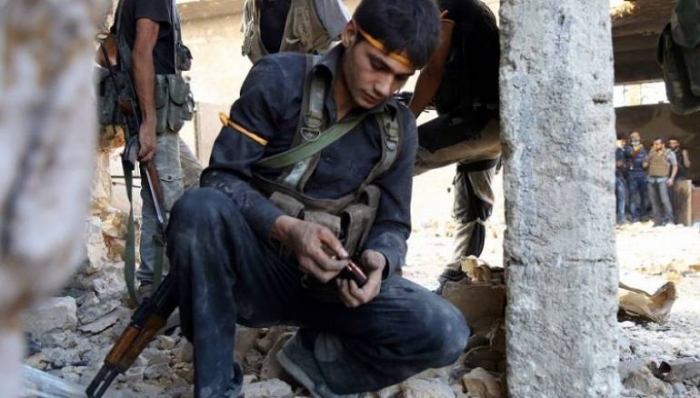Last Friday, Secretary of State John Kerry and Russian Minister of Foreign Affairs Sergei Lavrov discussed the possibility of implementing Security Council resolution 2254 in relation to Syria and putting into place a plan to counter “extremist” groups.
Russian-American committees have started to put together a new ceasefire plan, as the UN envoy for Syrian crisis Steffan De Mistura has announced a fourth round of talks between the Syrian regime and the opposition.
According to information obtained by Zaman al-Wasl, the Russians and Americans, with European support, pushed De Mistura to draft a new “framework plan” related to the crisis under the aegis of resolution 2254. The new draft will reformulate the negotiation process after three rounds of failure, and the plan will be supported by a Security Council resolution to implement the procedures.
The regime had been pursuing a political-military plan based around extending its control over Aleppo and waiting for American-Russian pressure to hold a round of negotiations in which the regime would be the victorious party, forcing itself politically on the International Committee and imposing its will as the most powerful force on the ground.
This plan remained intact for only a few days before conditions on the ground in Aleppo flipped, and the forces besieging the city became besieged themselves. The Syrian resistance has captured huge areas that had been under regime control, and made military advances including capturing the Artillery College and connecting Aleppo’s eastern and western neighborhoods. The resistance has broken the siege, and continues to advance.
In light of the Syrian resistance’s ecstasy of victory, the weaknesses of the regime and Iranian militias in Aleppo, and the conspicuous absence of Russian warplanes over Aleppo, Jaish al-Fatih released a statement confirming that the resistance will continue to advance on regime strongholds until they raise the flag over Aleppo’s citadel. Meanwhile, the international community is controversially silent, as if they are attempting to force Asad to kneel and be humiliated as well as minimize his military power.
The Syrian resistance’s progress in Aleppo, and a fear of the collapse of military balance on ground, has made Western countries seriously consider a ceasefire. However, this ceasefire will not include terrorist organizations as designated by the United States and Russia.
The anticipated outcome of this fierce battle is that De Mistura will present his new plan to hold a new rounds of negotiations soon, and will obtain the Russian, American, and European support needed to do so. Then, he will rally support in Security Council to put the final touches on the agreement, while the Russian and American committees arrange the cessation of hostilities between the regime and the opposition.
On Sunday, the Iranian news agency said nearly 2,000 well-trained fighters from the al-Nujabaa Movement trained are heading to Aleppo for a counteroffensive to recapture what the regime and Iran have lost there. This is also a clear signal from Iran that the only option in Syria is to continue fighting, since the battle in Aleppo is a shared endeavor between Iran and the Asad regime, and since the beginning, Moscow has not been in favor of it. The Iranian escalation could be an obstacle for international efforts seeking to maintain the status quo.
The conclusions of the Russian-American committee could also sabotage any international ceasefire initiative, especially if it classifies Jaish al-Fatah and Fatah al-Sham as terrorist organizations. This would push Iran, the regime, and Russia together against these forces, which were critical in the battle for Aleppo’s liberation.
It is therefore not easy for the international ceasefire plan to succeed if the Russian way of dealing with the factions on the ground remains the same. Otherwise, the international community will be responsible for placing the Syrian resistance in a position of being on the offensive, facing death on its own. If that happens and the ceasefire takes place that would force a wounded lion to go to Geneva, but this time it would not be in the style of “blunt” negotiator Bashar al-Jaafari – this time Geneva will be different.
This article was edited by The Syrian Observer. Responsibility for the information and views set out in this article lies entirely with the author.


